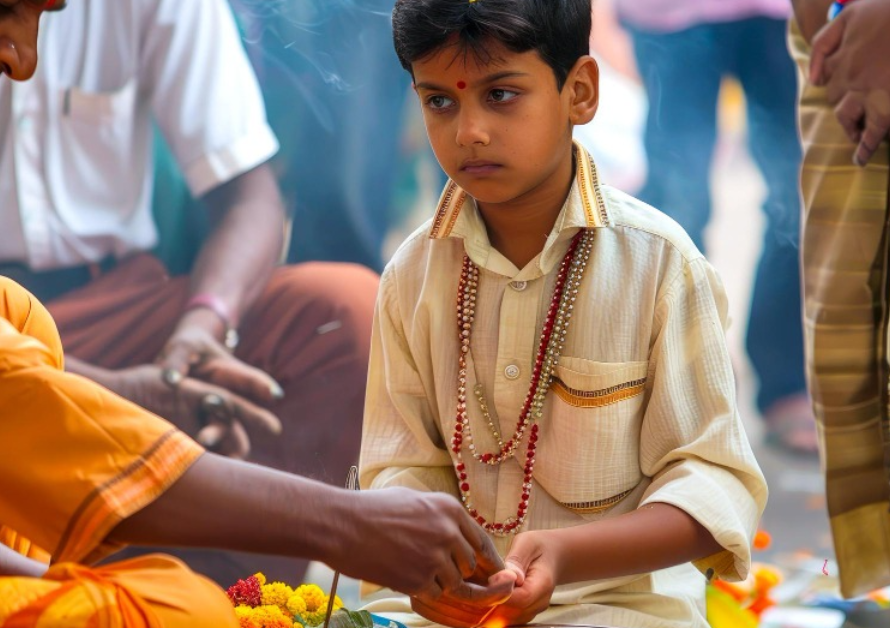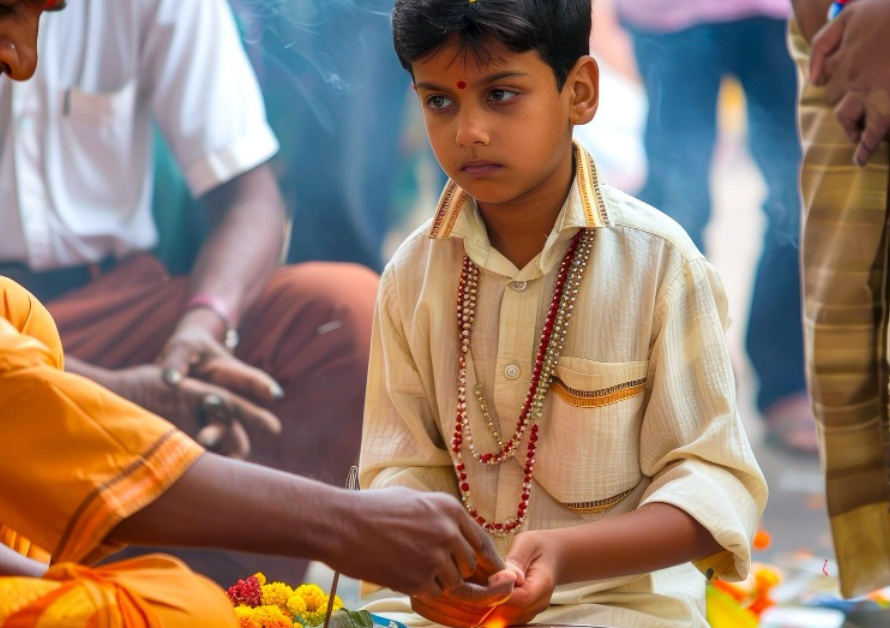Sanatana Dharma, being a universal philosophy rooted in truth, morality, and harmony, can serve as a spiritual and ethical compass for India’s governance, policies, and societal structure. Unlike religious dogmas, Sanatana Dharma emphasizes Dharma (righteousness), Karma (action and consequence), and Vasudhaiva Kutumbakam (universal brotherhood)—making it the ideal framework for national and global peace, justice, and progress.
1. Governance and Leadership Rooted in Dharma
A. Ethical and Dharma-Based Leadership
- Leaders must uphold moral integrity, selflessness, and accountability rather than personal or party interests.
- Governance should be rooted in Dharma, ensuring justice, fairness, and service to the people rather than opportunism.
- Inspired by Rama Rajya, policies must prioritize welfare, justice, and prosperity for all, without corruption or discrimination.
B. Nation Before Self-Interest
- Politicians and bureaucrats should take inspiration from Bhagavad Gita’s teachings on selfless duty (Nishkama Karma) rather than prioritizing power, greed, or short-term electoral gains.
- Dharma-based policies should be free from appeasement politics, ensuring equality and justice for all communities without religious bias.
2. National Unity and Cultural Preservation
A. Rejecting Divisive Forces
- India must actively counter internal divisions caused by religious conversions, linguistic separatism, and identity politics.
- Any movement—whether political, religious, or ideological—that seeks to divide Indians based on caste, language, or religion must be opposed as Adharma (unrighteousness).
- The promotion of Bharatiya identity over colonial, leftist, or foreign ideological impositions is essential.
B. Reviving and Protecting Indian Traditions
- Indian education, policies, and media must nurture and protect India’s native spiritual, cultural, and knowledge traditions.
- Sanskrit, regional languages, and ancient wisdom texts (Vedas, Upanishads, Mahabharata, Ramayana, and Arthashastra) must be promoted as the foundation of Indian knowledge systems.
- Foreign ideologies that distort Indian history, devalue Indian traditions, or attack Hindu practices must be challenged with facts and cultural pride.
3. Social Justice Rooted in Dharma
A. True Equality Without Appeasement
- Dharma teaches treating every individual with dignity, regardless of caste, class, or gender.
- Unlike Western models that pit communities against each other, Sanatana Dharma offers Varna as a skill-based system, not discrimination.
- Government policies should uplift the truly disadvantaged rather than engage in vote-bank appeasement that promotes division.
B. Women’s Dignity and Protection
- Dharma sees women as Shakti (divine power), ensuring their safety, dignity, and empowerment.
- Policies should protect Hindu women from predatory conversion tactics (Love Jihad), human trafficking, and gender exploitation.
- Equal opportunities in education, employment, and leadership should be promoted while preserving women’s cultural and family values.
4. Economic Model Aligned with Dharma
A. Dharmic Capitalism: Wealth with Morality
- Economic policies should balance wealth creation with ethics, ensuring no exploitation of workers, environment, or national resources.
- Swadeshi (self-reliance) must be promoted over foreign dependency, strengthening Indian industries and traditional knowledge-based businesses.
- Corporates must be encouraged to follow Dharmic principles of corporate social responsibility (CSR) to support national development.
B. Agriculture and Cow Protection
- Protection of Gau Mata (Mother Cow) is essential for preserving India’s agricultural and rural economy.
- Farmers should be empowered with organic farming techniques from Vedic traditions rather than being trapped in debt-driven, pesticide-heavy agribusiness models.
- Land, water, and forests should be respected as divine gifts, ensuring sustainable development without ecological destruction.
5. National Security and Protection of Dharma
A. Defense of Bharat from External and Internal Threats
- Strong national defense policies must protect India’s sovereignty, borders, and cultural integrity from external threats like China, Pakistan, and radical forces.
- Countering religious extremism—including Islamic radicalism, Christian conversions, and Naxalite/Marxist influences—is necessary to protect Bharat’s civilizational ethos.
- The resurgence of Hindu warrior spirit (Kshatriya Dharma) must be encouraged, ensuring Hindus are not passive but strong defenders of their heritage.
B. Global Hindu Influence
- Sanatana Dharma should be promoted worldwide through spiritual diplomacy, cultural exports, and soft power strategies.
- Hindu organizations must be supported to preserve and revive Hindu temples, traditions, and communities worldwide.
- Hindu unity beyond caste, region, and sects must be strengthened to form a global Dharmic ecosystem.
Sanatana Dharma as India’s Path to Universal Harmony
If India follows the principles of Sanatana Dharma in governance, society, economy, and security, it will not only prosper materially but also serve as a spiritual light for the world. Sanatana Dharma is not just about rituals but about living with righteousness, ensuring that:
✔ Truth and justice prevail over political deception
✔ Bharat’s culture and values are preserved and strengthened
✔ Dharma triumphs over Adharma in national and global affairs
🇳🇪 Jai Bharat, Vandematram 🇳🇪







